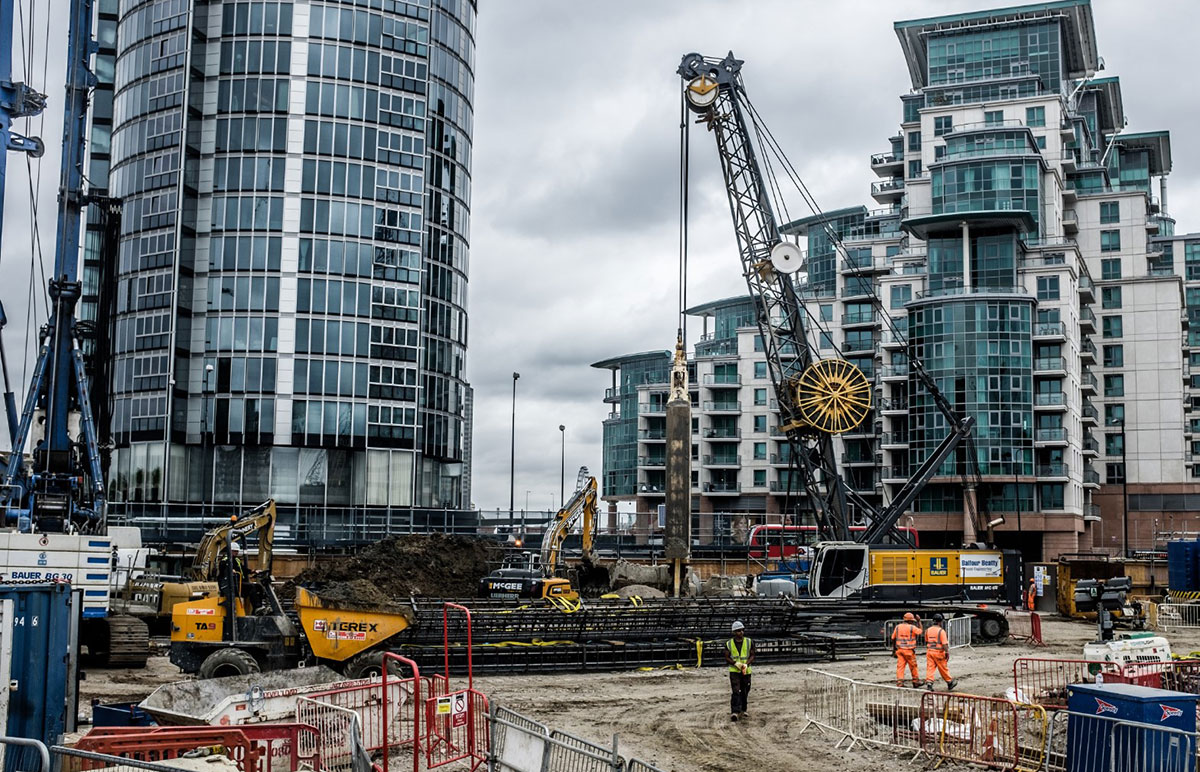Geotheta for Dummies
Geotheta for Dummies
Blog Article
The Of Geotheta
Table of ContentsThe Facts About Geotheta RevealedGeotheta - TruthsExcitement About GeothetaSome Of GeothetaThe Best Guide To Geotheta

They perform website examinations, accumulate samples, perform lab tests, and analyze data to examine the viability of the ground for building projects - Engineer of Record. Based on their searchings for, geotechnical engineers give suggestions for foundation layout, incline stability, retaining structures, and reduction of geotechnical hazards. They collaborate with other experts, such as designers, architectural engineers, and construction teams, to ensure that geotechnical factors to consider are incorporated right into the overall project design and implementation
By examining the habits and buildings of dirt and rock, they can recognize possible geotechnical dangers such as landslides, soil negotiation, or incline instability. Their knowledge assists protect against failures or crashes that could endanger lives and building. Here are some in-depth responsibilities and duties of a geotechnical engineer: Website Examination: Geotechnical designers conduct site investigations to collect information on subsurface problems.
They analyze the data to recognize the buildings and behavior of the soil and rock, including their strength, leaks in the structure, compaction features, and groundwater problems. Geotechnical Analysis and Style: Geotechnical designers analyze the information accumulated throughout site examinations to analyze the stability and viability of the website for building and construction jobs. They carry out geotechnical computations and modeling to examine aspects such as birthing capacity, negotiation, incline stability, lateral planet stress, and groundwater flow.
Geotheta - The Facts
Foundation Design: Geotechnical designers play a crucial role in creating structures that can safely support the intended framework. They analyze the dirt problems and load requirements to identify the ideal foundation type, such as shallow structures (e.g., footings), deep foundations (e.g (https://experiment.com/users/geotheta)., stacks), or specialized methods like dirt renovation. They think about aspects such as negotiation limits, birthing capacity, and soil-structure interaction to establish ideal structure styles
They review building plans, display website tasks, and perform field evaluations to verify that the layout recommendations are adhered to. If unpredicted geotechnical concerns arise, they assess the circumstance and provide referrals for removal or modifications to the design. Risk Evaluation and Mitigation: Geotechnical engineers examine geotechnical risks and risks related to the job website, such as landslides, liquefaction, or dirt erosion.

Partnership and Interaction: Geotechnical engineers work closely with various other professionals entailed in a task, such as architects, structural designers, and building and construction groups. Efficient communication and collaboration are necessary to incorporate geotechnical considerations right into the general task style and building and construction process. Geotechnical designers supply technological proficiency, solution inquiries, and make sure that geotechnical demands are fulfilled.
Geotheta Things To Know Before You Get This
Below are some sorts of geotechnical designers: Structure Designer: Structure engineers specialize in making and analyzing structures for frameworks. They analyze the soil problems, tons requirements, and website qualities to identify the most ideal structure kind and design, such as shallow structures, deep structures, or specialized methods like stack structures.
They evaluate the factors affecting incline stability, such as dirt residential or commercial properties, groundwater conditions, and slope geometry, and develop strategies to avoid slope failings and mitigate dangers. Quake Designer: Earthquake engineers specialize in assessing and creating structures to endure seismic pressures. They evaluate the seismic risk of a website, review dirt liquefaction capacity, and establish seismic style standards to make sure the safety and security and resilience of frameworks throughout quakes.
They execute field testing, accumulate samples, and evaluate the accumulated data to characterize the soil homes, geologic formations, and groundwater problems at a website. Geotechnical Instrumentation Designer: Geotechnical instrumentation engineers concentrate on monitoring and measuring the actions of soil, rock, and frameworks. They install and preserve instrumentation systems that check variables such as dirt settlement, groundwater levels, slope movements, and architectural variations to assess performance and provide very early warnings of potential issues.
The 5-Second Trick For Geotheta
They perform tests such as triaxial tests, debt consolidation examinations, straight shear tests, and leaks in the structure examinations to collect data for geotechnical evaluation and design. Geosynthetics Designer: Geosynthetics designers focus on the design and application of geosynthetic materials, such as geotextiles, geogrids, and geomembranes. They use these products to enhance soil stability, reinforce slopes, supply drainage remedies, and control erosion.
They tend to be investigative individuals, which implies they're intellectual, introspective, and investigative. They wonder, methodical, sensible, logical, and logical. Several of them are additionally social, suggesting they're kind, charitable, participating, person, caring, useful, understanding, skillful, and pleasant. Does this sound like you? Take our cost-free job examination to find out if geotechnical engineer is one of your top profession matches.
In the workplace setting, geotechnical designers make use of specialized software application devices to do estimations, create layouts, and examine information. They prepare records, testimonial project specs, communicate with clients and employee, and coordinate project tasks. The workplace setting supplies a helpful environment for research study, evaluation, and partnership with various other specialists associated with the task.
What Does Geotheta Mean?
They regularly visit project sites to perform website examinations, you can try here analyze geotechnical problems, and gather information for analysis. These visits include traveling to different areas, often in remote or challenging terrains. Geotechnical engineers may execute dirt tasting, conduct tests, and monitor construction tasks to make certain that the geotechnical facets of the project are being applied appropriately.
Geotechnical engineers likewise work in specialized geotechnical labs. In these facilities, they perform experiments, carry out tests on dirt and rock examples, and analyze the engineering homes of the products. Geotechnical lab engineers function thoroughly in these settings, managing screening devices, running tools, and tape-recording data. They collaborate with various other lab team to guarantee exact and reliable screening results.
Report this page